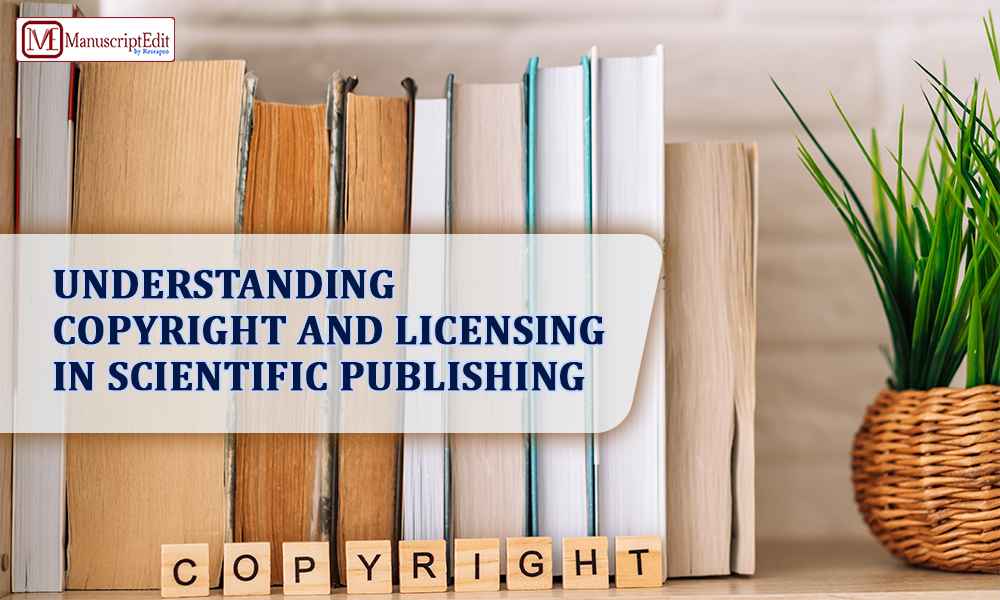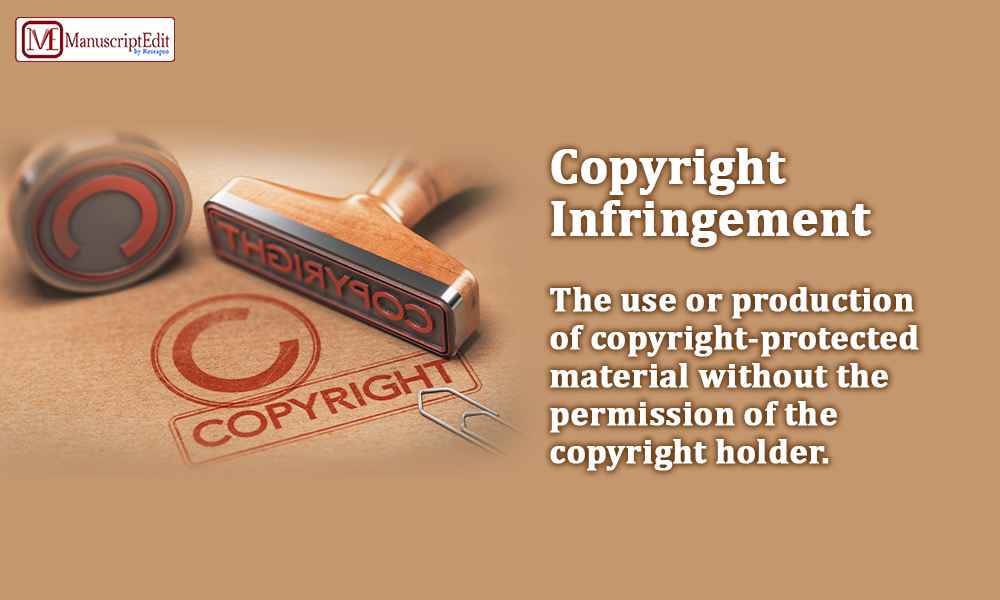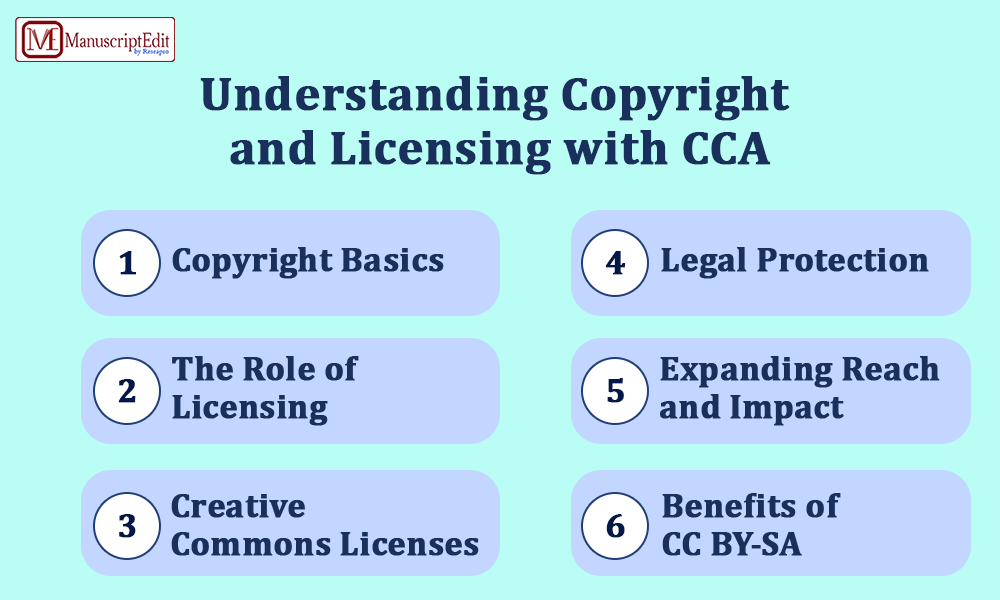
Researchers, authors, and publishers must have a solid understanding of copyright and licensing in scientific publishing to successfully negotiate the complicated world of intellectual property rights. To advance scientific knowledge, they must also learn how to maintain control, share work properly, and stay out of trouble with the law.

What is a Good Copyright Agreement when publishing an Article in a Scientific Journal?
A good copyright agreement should specify usage rights such as dissemination, reproduction, and derivative works when publishing in a scientific journal. If the author keeps the copyright or gives it to the publisher, that should be clarified. Authors must retain rights to manage how widely their work is used, provide proper attribution, and make future uses easier, including republishing or merging content into new studies.

Copyright Definition and Example
The copyright to a book that an author writes belongs to them. This implies that no one else may copy or distribute the work without the author’s consent. A copyright release and acknowledgement of the original work are required if any part of the book is to be used in a new job.
Published vs Unpublished Copyright
Publicly available works are made available through sales, transfers, or rentals, while unpublished works have yet to be distributed. This distinction impacts legal obligations, including the length of the copyright and required deposits. While unpublished works are protected forever, published works are only protected for a set time.
Who owns the copyright on the Results of Scientific Research commissioned by a Company?
The person or organization funding the research often owns the copyright when commissioned. This implies that the author or researcher needs help maintaining ownership or control over their creations.
Limitations on the availability, application, and dissemination of research findings, impeding field collaboration and advancement, and erecting legal obstacles to innovation are possible consequences for scientific advancement. In the end, this may hinder advancement and slow down the rate of scientific discovery.
 Are Current Licensing Regulations supportive or restrictive to advancing Scientific Research in certain areas?
Are Current Licensing Regulations supportive or restrictive to advancing Scientific Research in certain areas?
The licensing laws in place can both help and hinder the advancement of science. Encouraging statutes, like those requiring open access, make it easier for research to be widely disseminated, which promotes cooperation and creativity.
Restrictive laws, such as exclusive licensing contracts, can obstruct development by restricting access to vital information or technological advancements. Permissive licences, such as Creative Commons, facilitate the wider use and modification of research products, but restrictive licences can impede
collaboration or restrict access to essential data.
Fostering scientific growth in all domains requires striking a balance between the necessity for preservation and the advancement of knowledge exchange.
Does publishing a Scientific Article restrict others from patenting things mentioned in it?
The publication of a scientific paper usually only affects the ability of others to patent items discussed in it. Copyright and patent law are distinct fields of law, and the publication of a work does not confer automatic patent protection.
Since an article acts as prior art, it makes it easier for others to patent the ideas or concepts it presents. This implies that the concepts or ideas discussed in the article are now openly accessible, and anyone may utilize them as the foundation for a patent application.
Conclusion
Striking a balance between permissive and restrictive policies must advance research. Awareness promotes effective information exchange throughout scientific communities by enabling writers to make well-informed judgements.
References
- https://pressbooks.pub/researchlifecycle/chapter/copyright-and-licensing/#:~:text=In%20academic%20publishing%2C%20%E2%80%9Cauthor%20rights,or%20some%20of%20their%20copyright.
- https://authorservices.taylorandfrancis.com/publishing-your-research/moving-through-production/copyright-for-journal-authors/
- https://www.enago.com/academy/understanding-copyright-licensing-and-attribution/
